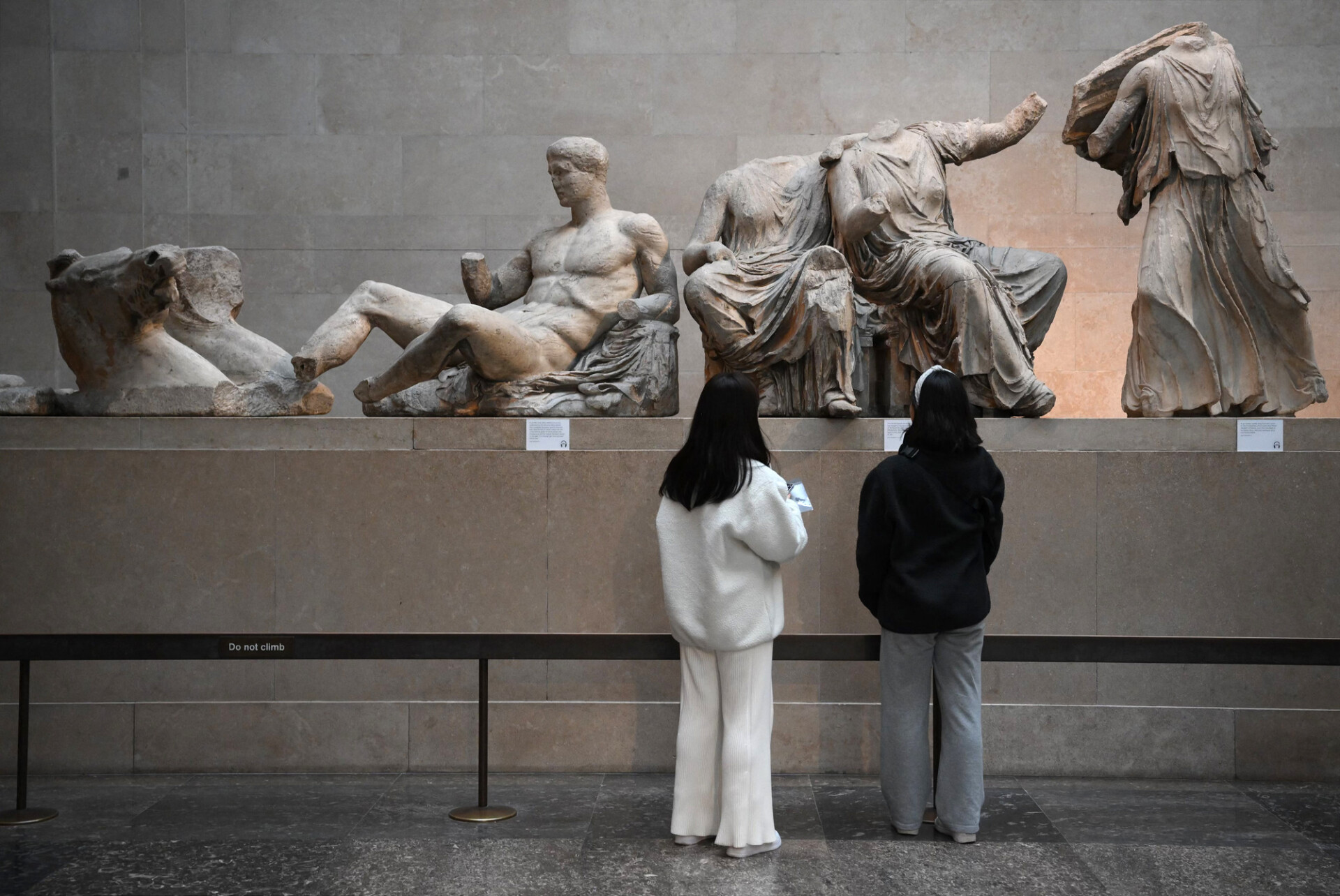After over 200 years, the longest running cultural quarrel in the West might well be finally close to reaching a resolution. According to a Guardian exclusive, talks between the Greek government and the British museum over the potential return of the Parthenon marbles back to Athens are “well advanced”.
While a final agreement isn’t imminent, this development is significant. That’s because the Starmer administration is more open to a potential relocation of the marbles than the previous government, with reports suggesting that it is warming to the idea of a “long-term loan”. Meaning, the Labour government wouldn’t stand in its way if a final agreement was reached.
Ever since Lord Elgin hacked those friezes, metopes and pediments from their bases, with permission from the Ottomans, and sold them to the British Museum, British opinion has been polarised on possession of these treasures between two major groups: those who argue that Elgin’s campaign actually rescued those marbles from the Ottomans, and those who feel that what Elgin did was desecration.
Lord Byron, in Childe Harold’s Pilgrimage, gave a teary tribute to the Parthenon whose “mouldering shrines removed By British hands, which it had best behooved, to guard those relics neer to be restored” and excoriated Lord Elgin for being a “plunderer”. Down the years, Byron’s basic point that Britain committed an act of cultural vandalism that ought to be restituted has been taken up by the likes of Christopher Hitchens and Stephen Fry. Indeed, many Britons now realise it is politically incorrect to refer to them as the “Elgin marbles”. Successive YouGov polls have also indicated that a majority of Britons agree that the marbles should be returned to Greece.
Western museums have been on the end of a slew of claims from various parties for the repatriation of artefacts that were looted during the colonial period to their “rightful” owners. Such claims make the British Museum in particular anxious as they feel if it gives in on the Parthenon Marbles then other parts of its collection will be vulnerable.
But the case of the Parthenon marbles is sui generis. While there’s plenty of Greek ethno-nationalism involved, the chief argument for its reunification is not based on cultural nationalism or a silly navel-gazing need for Britain to “atone” for Lord Elgin’s colonial pillaging; they were once part of a singular whole that was disintegrated into the mere sum of its parts. In other words, the case for reunification is artistic and humanist. Germany and Italy have already returned fragments of the Marbles to Greece to aid the project of reunification and restoration of the Acropolis Museum in Athens, and Britain should follow suit; it makes no sense to wrench apart, and keep apart, a glorious work of art.
Does this mean that all the diaspora of classical Greek artefacts and sculptures that inhabit museums across the world must henceforth be repatriated “home”? Of course not. Nor does it mean the Rosetta Stone must be returned to Egypt, or the Benin Bronzes to Nigeria. They’re better off staying exactly where they are. Each case must be judged on its own merits, but in the case of the Parthenon Marbles, the case for reunification — my preferred term — on aesthetic grounds is decisive.
The Parthenon marbles belong to all humanity. It is on that basis that the Parthenon Marbles should be reunited, so that humanity can see a magnificent masterpiece — one of the great monuments of Western civilisation — in its harmonious entirety, rather than as ripped off, amputated pieces separated from each other.











Join the discussion
Join like minded readers that support our journalism by becoming a paid subscriber
To join the discussion in the comments, become a paid subscriber.
Join like minded readers that support our journalism, read unlimited articles and enjoy other subscriber-only benefits.
Subscribe